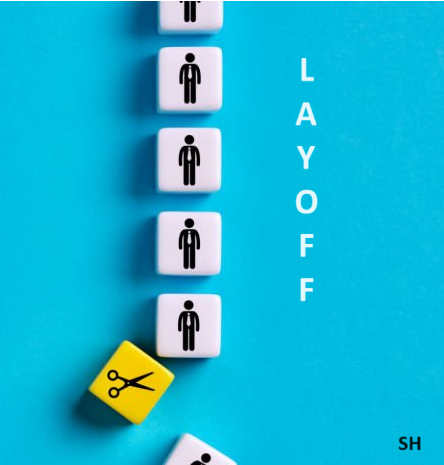
Table of Contents
LAYOFF: Timing, Reasons, and How to Respond
Don’t panic, accept it. In every employee’s life, at least once, a layoff will come. So, the question is what’s the challenge, and what’s the right way to face it?
Timing:
At the beginning:
If a layoff happens within a few months or years of starting a job, the main struggle will be social shame and anger. But finding another job won’t take too long because, as a fresher, the salary expectation is low.
Early mid-career (30–40 years):
If a layoff happens in this stage, it is tough. This is the time of building life, but savings are low and loans are heavy.
Mid-career (40–50 years):
At this stage, one usually has some savings to manage and still has opportunities to get another job.
End-career (50+):
This is the hardest. Even if the person has good savings but spending a penny from savings is painful. Besides this, the chance of getting rehired is not easy, as only a handful of senior positions are available, and vacancies are even less.
What’s the real reason for layoffs?
Whatever excuse is shown, the core reason is always cost-cutting. But companies often shift the blame onto the employee to avoid paying compensation or hide their own inefficiency. The same company you’ve built with decades of hard work will suddenly point fingers, saying a lack of skills, or worse, compliance issues. But they never state the actual issue, because there isn’t much to say.
What should be done?
Preparation for a layoff should not start after it happens; it should start before.
1. Keep upgrading your skill set.
2. Occasionally apply for jobs and attend interviews. Keep on updating CVs.
Most people make the mistake of thinking “I don’t need to change jobs” and assume it will continue forever. Then, when a layoff strikes, they find they don’t even have a proper CV or interview practice. And remember, you are expert at taking interviews does not mean you are good at facing interviews.
The real struggles of getting another job (especially in mid and end career):
i. The biggest issue is when a senior has to be interviewed by someone much junior. Two reasons for rejection often happen: one, the interviewer sees you as competition for their own role; two, the interviewer simply lacks the maturity to assess someone more experienced. As the saying goes, when an elephant falls into mud, even frogs kick. Placement company interns can also irritate you with endless questions and asking CV to show their efficiency in accumulating CVs.
ii. You may have to compromise heavily on salary or package. Don’t hold on to the foolish ego of “I know my value, others don’t.” What matters is trying not to compromise on position. If you keep your position and skill intact, your salary will bounce back within a few years. Important to restart as sitting without a job is not only your pressure but more pressure for the family members.
iii. The greatest stress is uncertainty: whether you’ll get another job at all. From my analysis based on observing many cases, and once hit by a layoff in mid-career, something usually clicks within 6 months to 1 year. Patience is necessary. You are simply lucky if you get earlier or immediately.
And perhaps the most irritating part you’ll have to tolerate is endless advice (like this post itself).
— Subrata Halder —
